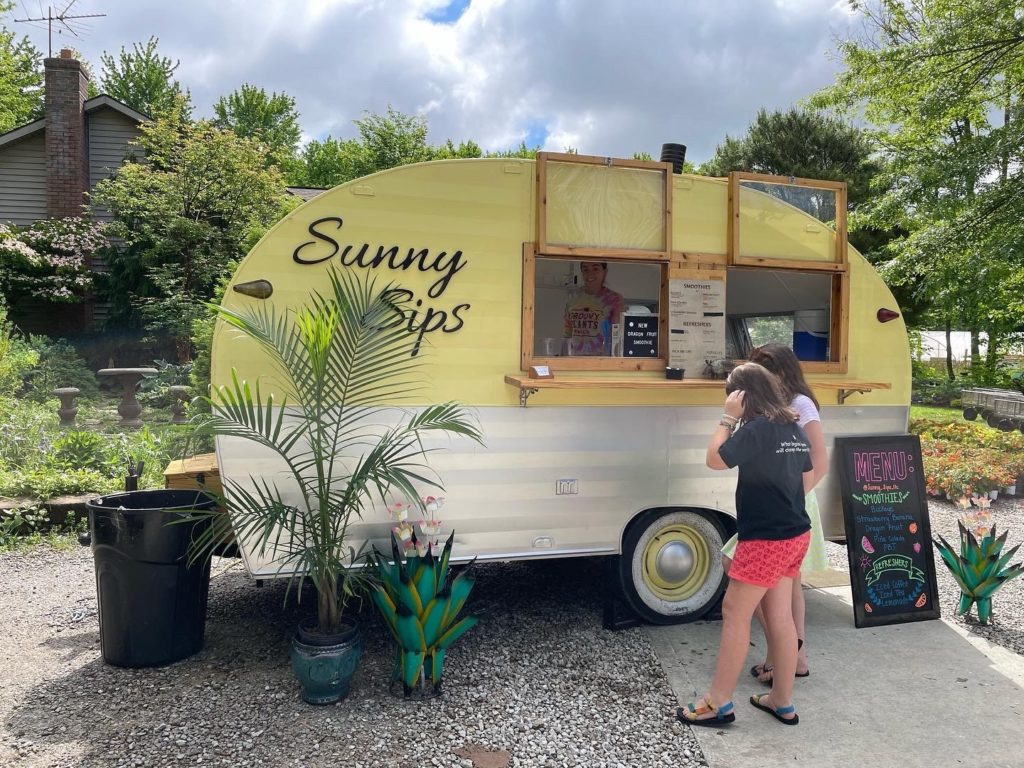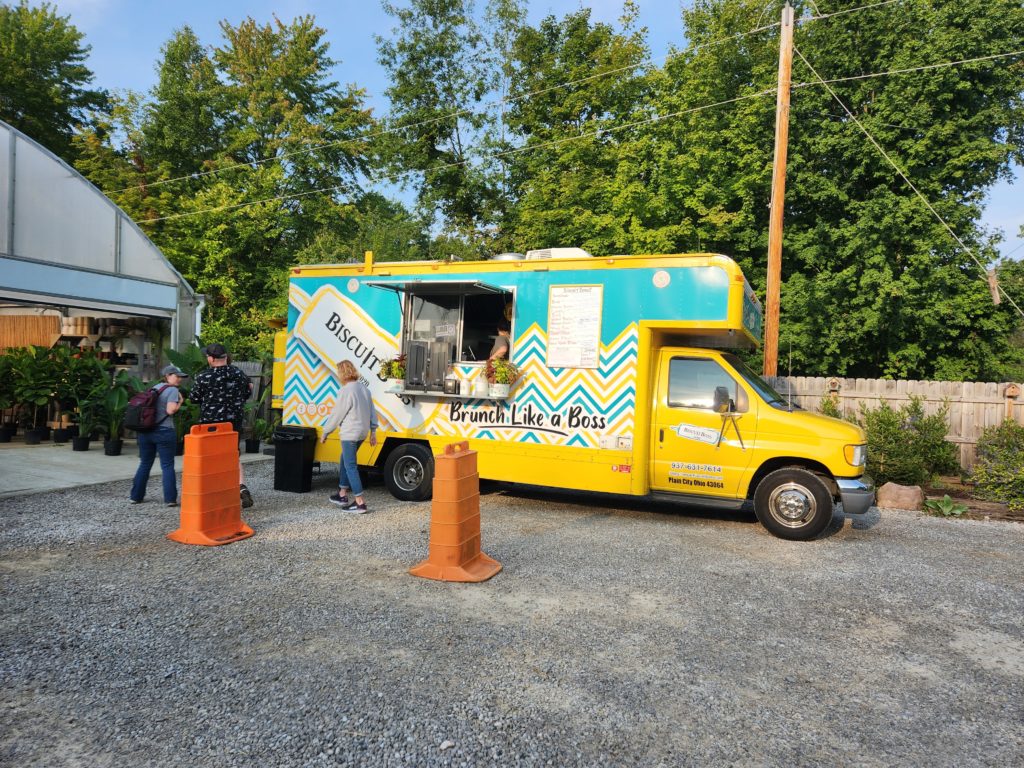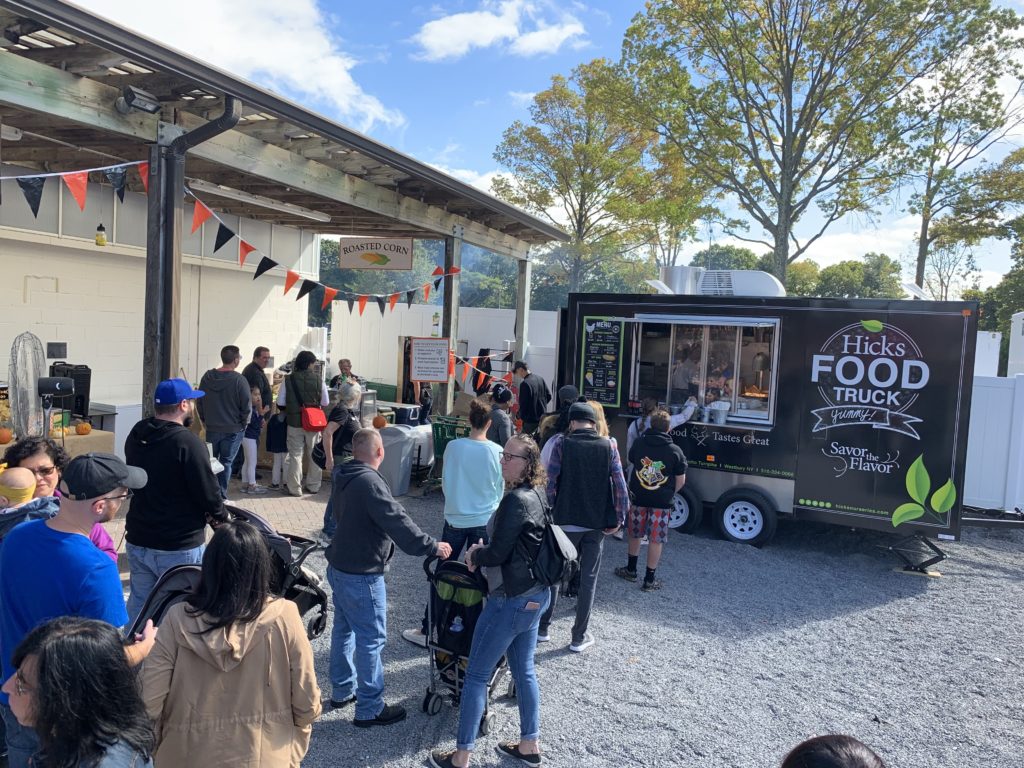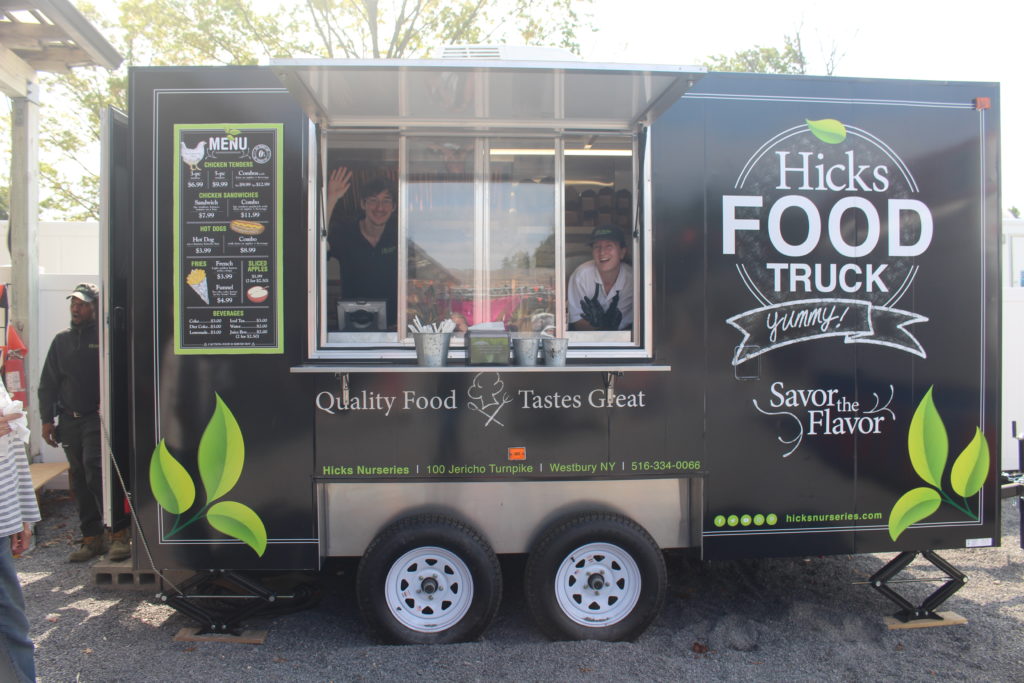
Going mobile: Considerations for incorporating a food truck at your retail event
You have a store full of customers — how can you get them to stay longer? Feed them of course. Two garden centers share the different roads they followed to having food trucks on their property and what other garden centers should know when considering hosting — or building — food trucks.
Making a Day of It
Liz Hughes, co-owner of Groovy Plants Ranch, says they host events several weekends a year. But their garden center is located in rural Ohio and not a quick drive for customers to leave for lunch or a snack.
“Our main reason for considering food trucks in the beginning was because of our location,” Hughes says. “There isn’t really anything near our garden center, so people would need to get lunch and then they would not come back because it was too far away. Or they’d be here and they were hot and thirsty and all we had to offer was water or they’d have to drive pretty far away to get a beverage and so they would just cut their visit short.
“So we first began integrating food trucks just to make customers’ visits more convenient. And then when we saw the feedback that we were getting — people really liked the pairing of being here, making an event of driving to visit Groovy Plants Ranch and then also getting to get a snack or a beverage from a food truck — that added to their enjoyment of visiting.”
 More Is More
More Is More
Hughes says customer feedback was a big part of hosting more food trucks at their store. “We first started just booking them on our larger weekends, our bigger events, especially some of our events where customers would spend quite a while being here — then we’d have food so they’d have something to eat while they’re here. In 2021, we started having food trucks basically every Saturday and Sunday during the spring, summer and fall that I could book. Sometimes there were weekends when I couldn’t book anyone.
“Customers really enjoy coming out, getting a smoothie or a cup of coffee and sipping on that while they’re shopping. They also like to come out and make a day of visiting our store. We are a destination garden center, so we regularly have people visit from 45 minutes away — that’s very normal — and up to like three or four hours away on a weekend. And so people make an event of coming out. They make the journey out and then they have food to eat while they’re here and they don’t have to leave, and it becomes part of the whole experience for our customers. They really enjoy the all-inclusive experience of visiting.
“And just about every time — except for when people got rained out — the food trucks seemed to have a good time. They were happy to be here and most of them want to come back.”
She says that the food trucks add value to events they host. “We have something called a Succulent Solstice, for example, where we have some of our staff talk about succulents. We invite the local clubs to come and have meetings or meetups here during that day. And then we also have a food truck or two here on that day. When we’re doing events like that, I find that there’s added value and added draw because the food trucks are here.”
 Considerations and Conditions
Considerations and Conditions
For garden centers just getting started with food trucks, Hughes suggests being “a little bit choosy about the food trucks you let in. Don’t just let anyone because we’ve had food trucks here that, once they were here, we felt like we maybe didn’t want them to come back. You may not know that before they show up.”
She also says to make sure to check their insurance so you know that they’re insured.
Hughes has found that there are two ways to go about hiring a food truck to come on site. “Food trucks sometimes charge to come and visit you. If you have a birthday party, for example, they’ll charge you a certain amount to come to your birthday party. Or food trucks will pay to set up at premium locations. When I approach food trucks, I tell them we’re not doing either of those things right off the bat. I say, ‘We’re not charging you to do this, but we’re also not going to pay you to come out — but it’s a good activity.’ And then I give them some of our numbers of checkouts; if we had 300 checkouts on that day and we average four customers per car, then they can expect this event to be close to 1,000 people. I give them some numbers to work with when I’m inviting them.”
She says social media is another method for finding local food trucks to invite. “Don’t be afraid to just put it out there on your social media,” she says. “We have now built a network of food trucks that we know and we like. So for 2023, I’m going to approach those food trucks first to book my best dates. Then when the rest of my dates are still open, I will put on social media that we’re looking for food trucks. Customers are really good at replying to those posts with tagging certain food trucks and recommending them. And then those food trucks — because they get mentioned in the comments — will see the post. That’s a great way to start networking with food trucks. If you haven’t done any food trucks at all yet, that’s a great way to start. You could pick a few key weekends that you would want them to be there. And then you can post those dates right away and people may reach out to you right away. It’s easier than going on your own and searching for specific trucks.”
 Feeding a Crowd
Feeding a Crowd
Felix Cutrone, retail store manager at Hicks Nurseries in Westbury, New York, says they introduced their own custom-built food truck as an extension of their in-store café.
“We found that, during our large events, such as our Fall Festival, the café could not support the crowds we had, and we wanted to bring the food to where the crowds were — which was outside. Being mobile allowed us to place it in several different locations on the property to test the most convenient spot for our customers and their families. The food truck also gave us the ability to offer differently prepared foods, such as chicken tenders and French fries, which are made to order fresh and served hot.”
Deciding what to put on the menu was easy — they simply asked customers what they wanted. “We asked our customers what they would expect for themselves and families, and they told us they wanted finger foods. Prior to the truck, our roasted corn was a big hit, so we were sure to include that.”
He says they go to different vendors to taste the items they’re considering for their menu before adding them to their selection.
Cutrone says customers enjoy having the truck on site. “We often get asked where it is when there is no event.”
Tips and Tricks
Whether considering hiring food trucks or building your own, Cutrone has some tips. “If you are interested in starting a food truck, it’s important to have someone on staff that knows the food industry. Of course, make sure you have a business plan and a tight menu. Do a few things and do them really well.
“If you are going to bring in a truck for special events, make sure to see how they operate on-site and how they act with customers. They should be able to represent your garden center in the same brand voice. And, of course, taste their product. Does it fit with what your customer would expect in the offering? Is the quality good? What you offer is a direct representation of your brand. Make sure it’s a seamless experience.”
For an enhanced reading experience, view this article in Lawn & Garden Retailer digital edition.











